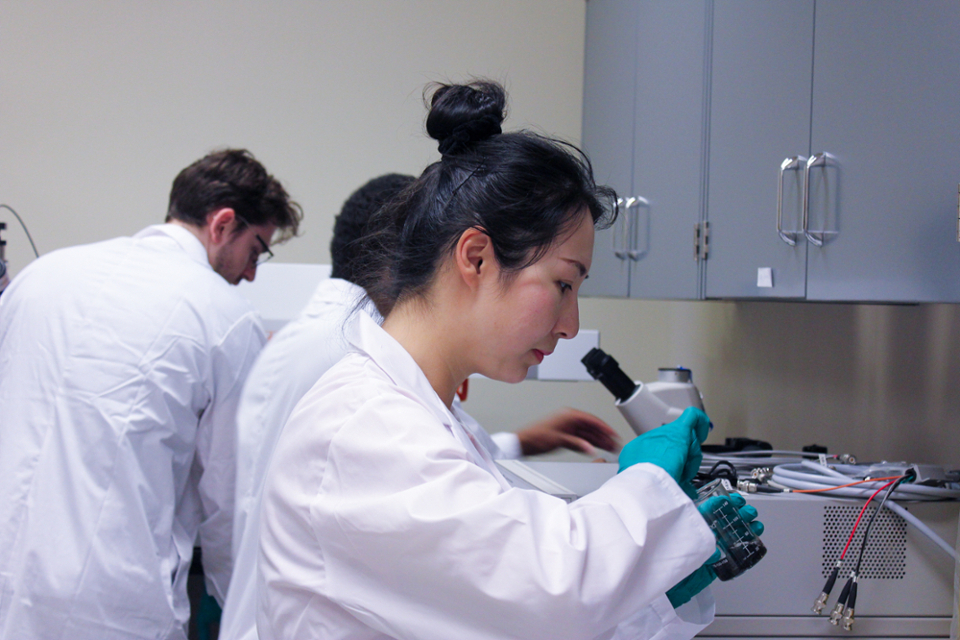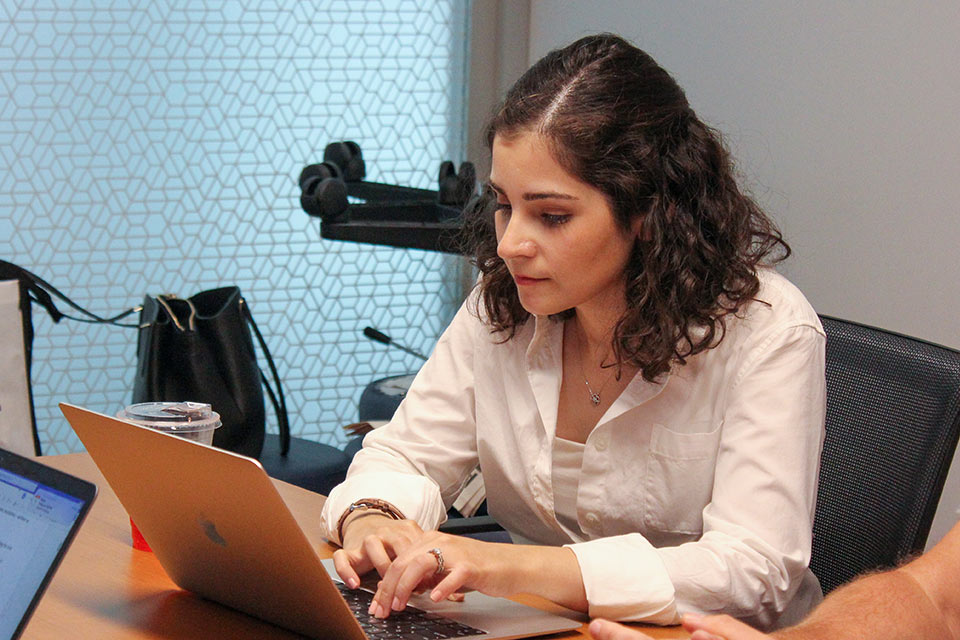Master of Applied Science (MASc) in Electrical and Computer Engineering

Advancement in computing technology and the availability of big data has led to a resurgence of research in artificial intelligence (AI), machine learning and deep learning. AI is pushing the innovation boundaries across all disciplines, and industry has been investing heavily in various AI technologies. There is a high demand for graduates with an AI background from industry and research labs.
The Department of Electrical and Computer Engineering (ECE) has substantial expertise in AI-related methodologies and application areas. We prepare our MASc in AI graduates with area-specific knowledge, skills, and competencies sought by the AI sector.
Master of Applied Science program with a Field of Study in Artificial Intelligence provides graduate students with a solid foundation in the principles of AI, machine learning, and deep learning. Graduates will be able to design and analyze AI-related algorithms and methodologies, employ modern scientific and engineering tools, and apply AI-based techniques to tackle complex research problems. They will learn advanced research and technical knowledge in AI-related fields and will have a deep understanding of the ethical and societal implications of AI. The program will prepare graduates through a combination of classroom and online learning, team-based problem-solving and course projects, research seminars, and faculty-supervised research projects. The student learning experience will be promoted through an inquiry-based curriculum. The MASc program with a Field of Study in Artificial Intelligence is recognized by the Vector Institute for Artificial Intelligence as delivering a curriculum that equips its graduates with the skills and competencies sought by industry.
AI-related courses:
Other related courses offered by core ECE and cross-appointed faculty include ELEC 845 Autonomous Vehicle Control and Navigation, ELEC 474 Machine Vision, CISC 881 Machine Learning and Medical Image Processing, and EE 523 Integrated Navigation Systems (RMC)
MASc with a Field of Study in Artificial Intelligence Program Sheet
For information on admission requirements, application process, and funding, please see our Master of Applied Science page
The core ECE faculty delivering the curriculum components of the MASc with the field of study in AI are:
Xiaodan Zhu: machine learning, deep learning, and natural language processing
Ali Etemad: Machine learning, Internet of Things, data science
Michael Greenspan: Machine vision, image processing
Geoffrey Chan: Speech and signal processing, machine learning
Joshua Marshall: Intelligent robotics
Steven Blostein: Sensor networks, IoT, machine learning in wireless communications
Jianbing Ni: Machine learning security and cybersecurity
Il-Min Kim: Deep learning, reinforcement learning, IoT, mobile AI
Ahmad Afsahi: High-performance deep learning
Saeed Gazor: Machine learning, statistical image and signal processing
Keyvan Hashtrudi-Zaad: Autonomous driving
Karen Rudie: Discrete-event systems, intelligent agents
Ning Lu: Internet of Things, communication networks for autonomous vehicles
Shahram Yousefi: Machine learning in resource allocation, data storage, and telecom
John Cartledge: Machine learning, optical communication<
Ryan Grant: AI/ML at Extreme-scale, AI/ML applications in Smart Networks
Parvin Mousavi: AI in biomedical computing/engineering, School of Computing
Gabor Fichtinger: Applications of AI in computer-integrated surgery, School of Computing
Hossam Hassanein: Machine learning for communication networks, School of Computing
Aboelmagd Noureldin: AI and machine learning for multi-sensor positioning and navigation, RMC
To attract top students in Ontario and from around the globe into a growing number of AI-related master’s programs, Vector’s merit-based entrance scholarships recognize promising AI talent applying to Ontario universities. Scholarships are valued at $17,500 for one year of full-time master’s study at an Ontario University. Prospective MASc students for the field of study in AI with first-class standing are encouraged to apply for Vector scholarship through Debra Fraser and Cheryl Wright. For eligibility and application components, please consult Vector Scholarship in Artificial Intelligence.
The Department of Electrical & Computer Engineering is home to nationally and internationally recognized researchers and cutting-edge research facilities. Our research is categorized into the areas of:
Our graduates have found careers:
Interested in learning more about becoming a postdoctoral fellow? Learn more through Queen’s School of Graduate Studies and Postdoctoral Affairs.
Graduate Program Assistant
Cheryl Wright
cheryl.wright@queensu.ca
613-533-6000 ext. 79307
Walter Light Hall, Room 416
Graduate Program Assistant
Debie Fraser
fraser.d@queensu.ca
613-533-2179
Walter Light Hall , Room 416A

Two-year thesis/research-based master’s program.

Advanced engineering skills in a specific area of specialization.

Researching and developing future technology

This program is offered in collaboration by the departments of chemical, electrical and mechanical engineering.